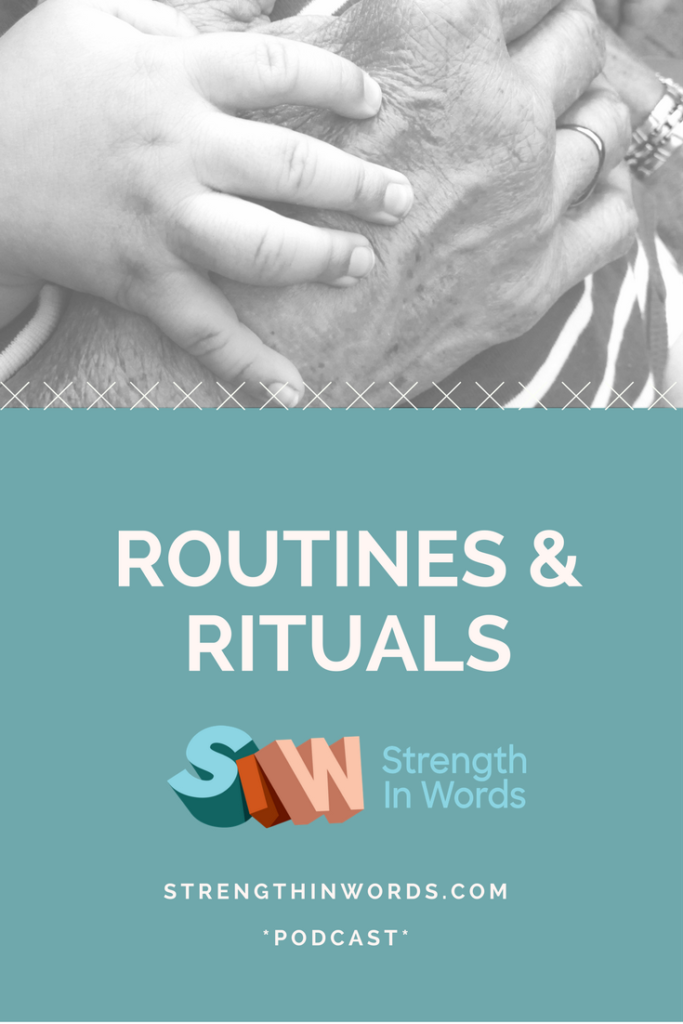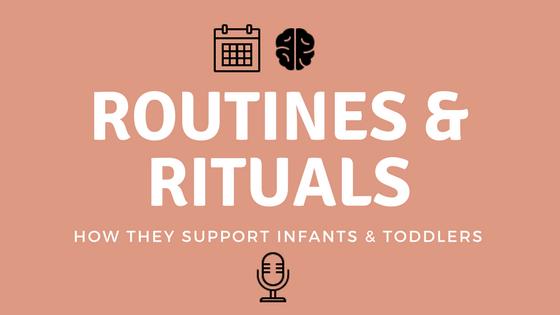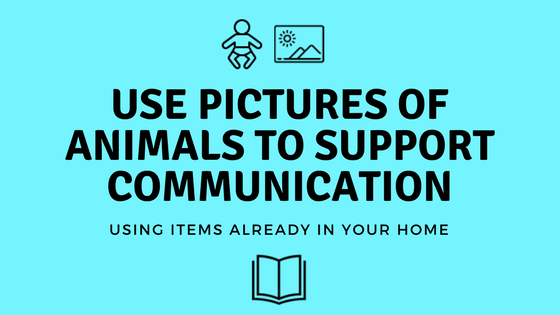It’s said children thrive on routine.

In this episode, Ayelet discusses the topics of routines and rituals.
We cover ways to maximize routines with infants and toddlers by embedding them with value – promoting the inherent ways they promote development, and helping us enjoy the interaction!
Below is a transcript of this week’s “Developmental Thought,” an excerpt from the full episode.
For additional information, music, play ideas and the complete interactive family experience, please listen to the entire episode.
Last week, we spoke briefly about routines and rituals, and now I’d like to delve into this a bit deeper.
First, I’d like to mention that what we can refer to as “caregiving routines” are often the most powerful opportunities for learning.
>>Don’t Miss Our Corresponding Blog Post!<<
These are the experiences that babies have regularly and consistently throughout each and every day. Not only is your baby experiencing – and participating in – daily routines, she is also learning about interaction.
In addition, she will eventually learn to make predictions about what will come next and therefore anticipate transitions between activities more smoothly.
Traditionally, we think of these caregiving routines as events like:
- waking up
- going to sleep
- bath time
- eating / nursing / feeding
- diaper changes
Daily Routine
Even daily routines can become special moments for you and your baby – we know that it’s that social/emotional bond with one or more caregivers that really contributes to a young baby’s development.
I think it can be helpful sometimes to think about the fact that even changing your baby’s diaper can become a really stimulating, nurturing, rich moment between the two of you! Making these times more distinctive for you and your baby, and adding other special moments throughout the day to add “ritual” to your life, can be incredibly simple things!
You might sing a special song or say a particular phrase during these moments – it could be something you have heard or liked, or something a family member said to you when you were young. For instance, when your baby wakes up to start the day, you could look out the window and sing a little ditty about the sun, or talk about the weather outside.
Even saying something in a silly voice to prepare her for the next activity, like, “stiiiiinky diaper! It’s tiiiiiime for a new one!” will provide a consistent cue for your baby to learn what comes next, at the same time creating a unique ritual shared by the two of you!
Create Ritual
You also might add your own rituals – these can be things you do on a daily basis or to mark special or rare occasions, highlighting different aspects of various events. Think about what you can do to transition from one part of the daily routine to the next.
I find that music can be a really powerful tool in this. When we introduce songs to mark different parts of our routines, we are using a really cool auditory experience to make associations. For example, we sing a hello song at the beginning of each of these episodes, and a good-bye song at the end. As you continue to listen, your baby will learn to associate these songs with the beginning and end of this experience… but you can take it further than that.
A good-bye song can really help with transitions, for instance. So a little one who doesn’t think she’s ready to get out of the bath might really benefit from additional types of cues than the standard “we’re going to get out in another minute.” Engaging your baby in the process of saying good-bye to all the bath things, making it into a game where you wait for her to point to the next one before you sing to it, or simply going around to each item and singing about every one “good-bye to the duck, good-bye to the water, good-bye to the spout, good-bye to the shampoo!” allows her to feel like the fun is still happening, lightening the mood even though it signals a transition out of her preferred activity.
Making a habit of these types of silly interventions in the early days before your baby has an opinion one way or the other about it can help keep everybody on track. It may not work every time, but it’s a tool.

